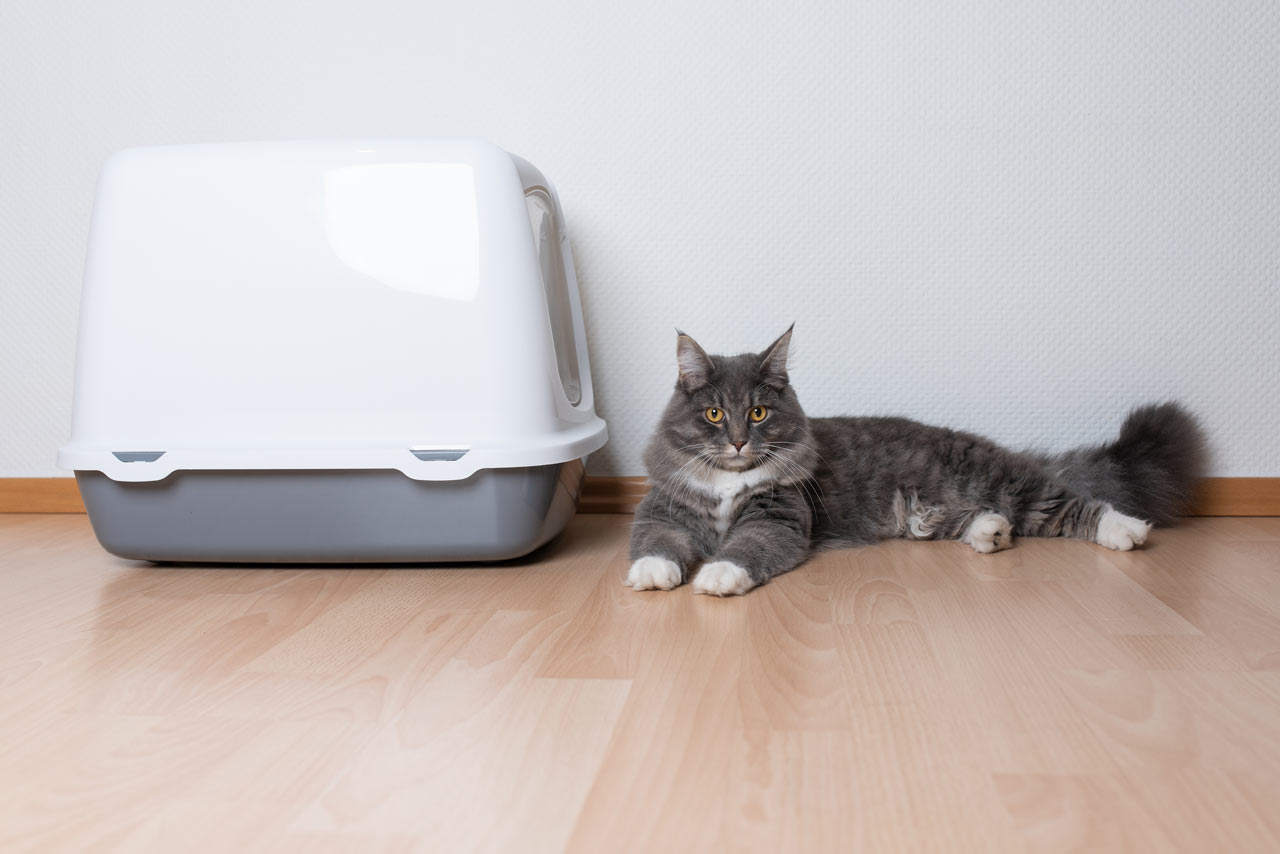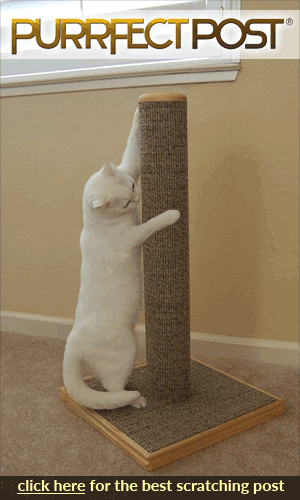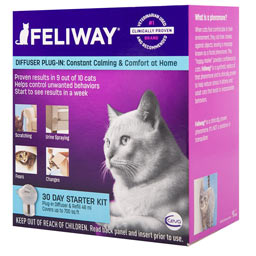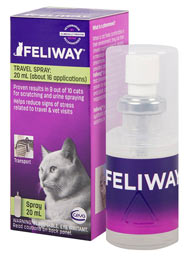- Home
- Inappropriate Urination in Cats: Causes and Solutions
Inappropriate Urination in Cats: Causes and Solutions

It's one of the biggest problems cat owners deal with—urinating outside the litter box. It can be frustrating to the point that it's also one of the top reasons that cats are surrendered to shelters or abandoned outside.
It's not that surprising that inappropriate urination is a problem with many housecats. After all, using a litter box for eliminating isn't a natural state for cats. Outside, they'd usually go in soft sand or soil. And urine is often a means for marking territory. Cats that are stressed mark more to help themselves feel better.
Luckily, there is hope for helping a cat that is urinating outside the box and ending the problem for good.
Why Do Cats Urinate Outside the Litter Box?
The first thing you'll need to consider to end a feline inappropriate urination problem is what's causing it. There are a lot of things that can trigger the issue, and sometimes, they have different treatments. Here are the most common causes:
- A medical problem. When your cat begins urinating outside the litter box, the first thing you should check out is a medical problem. Urinary tract infection, cystitis (inflammation of the bladder), and health conditions that cause increased water consumption, such as diabetes, can cause inappropriate urination.
- Not being neutered. An intact cat (one that's not neutered) often sprays urine on vertical surfaces to mark territory. While this is much more common in males, females can do it too. Additionally, a non-spayed female often sprays when she's in heat.
 Litter box aversion. This is the biggest category, and it includes a bunch of sub-categories that can cause a cat to develop an aversion to using their litter box for elimination. The sub-categories include:
Litter box aversion. This is the biggest category, and it includes a bunch of sub-categories that can cause a cat to develop an aversion to using their litter box for elimination. The sub-categories include:
- Location aversion. This happens when the box is in a high-traffic area where the cat is often disturbed while using it, is near something loud like a washing machine, or is in a dead-end spot where the cat feels trapped. Having a litter box too close to the cat's food and water can also create a location aversion.
- Litter aversion. This is when a cat doesn't like the type of litter in the box. It occurs most frequently when non-clumping or scented litter is used.
- Box aversion. This can occur when a cat doesn't like the litter box itself. It happens most often with covered boxes and automatic self-cleaning boxes.
- Aversion due to a negative experience. This can happen if a cat is harassed by another pet or child while in the box. That trauma can create a negative association with the litter box. It can also occur if the cat has a painful condition exacerbated by using the litter box. The most common examples of that are having to use the box after being declawed and experiencing a urinary tract infection that causes pain during urination. Additionally, painful stools such as are associated with constipation can cause this.
- Aversion due to box cleanliness. This may be one of the most common causes of inappropriate urination in cats. Cats don't like going in boxes that are dirty or smelly. Some want to urinate separately from where they defecate. Others don't like sharing a box with another cat. Increasing how often you scoop the box, change the litter, and wash the box and boosting the number of boxes in your home can help with this issue.
- Stress. Cats that are feeling stress may urinate inappropriately to mark territory and feel better. This can occur due to any stressor, but it is most common when there are multiple cats in the house that don't get along well.
How to Treat Inappropriate Urination in Cats
The first thing to do if your cat is urinating outside the box is to make an appointment with your veterinarian. The doctor will do a thorough physical exam and check a urinalysis and possibly blood work for a problem.
Next, thoroughly clean the soiled areas with an enzymatic cat urine cleaner. If you don't do that well, the kitty or other cats in your home will likely continue urinating over those spots to re-mark them.
If your cat's medical status is declared healthy by a vet, start working through the above issues one by one. Trouble-shoot each one at a time to determine what may be going on. For example, if the box is in a high-traffic area, move it somewhere quieter. If you're using crystal litter, try clumping. If you only have one box and three cats, boost the number of boxes.
Make sure you have a box in every significant area of your home (for example, on every floor).
If you feel that your cat may be stressed, work to eliminate or decrease the stressors. Additionally, you can use Feliway diffusers and sprays in your home. This substance mimics the calming pheromones of cats and helps them feel better. Learn more: "Fighting Feline Stress with Feliway."
Increase your interactive playtimes and add more scratching posts to your home because those things are potent stress-fighters in cats.
Go over this article and make sure your litter box cleaning routine is up to speed: "How to Clean the Litter Box."
As you work your way through the possibilities, give your cat a few days to respond to each one. And remember, inappropriately urinating is a type of communication from your cat, not willful bad behavior. Don't punish your cat, which will increase stress and likely make the behavior worse or introduce other unwanted behaviors.
 Loading... Please wait...
Loading... Please wait...





